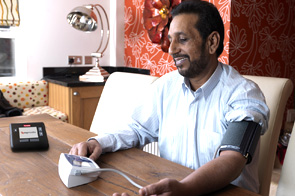Message from AKTIVE’s Director
By Sue Yeandle, Director of CRICLE at the University of Leeds and AKTIVE’s director
The AKTIVE project is well under way! AKTIVE’s central partnership – two universities, a telecare manufacturer and a market research and commercialisation company – also has the benefit of an energetic project Consortium, a dedicated Social Research Team and an expert, international Advisory Board. The energy and creativity each brings has proved invaluable, and there is more information about the role of each on these pages.
The four partners spent Year 1 laying the project’s foundations, negotiating arrangements for the research on which the project depends, and working with the Consortium on the first AKTIVE outputs. The partners communicate regularly, have quarterly Management Meetings and work closely with Consortium members on different aspects of the project.
In Year 1 our work with members of the Consortium included compiling a comprehensive review of the ‘state of the art’ on telecare use by older people, especially those with a risk of falling, within or outside the home, and /or memory problems which cause forgetfulness, disorientation or confusion. This produced a review of the literature, theories and policies relevant to the use of telecare in private households. A summary of this is available here: the full review will be published later in the project. AKTIVE also commissioned: expert papers from the two clinicians within the Consortium; a market research report, produced by partner Inventya; a mapping exercise, led by the Robens Institute working with the Helen Hamlyn Foundation, and specialist training. The Consortium met three times in 2011-12 to discuss progress and plans.
The Social Research Team (SRT) is responsible for collecting new research data from older people who use telecare and those who support or care for them and for gathering perspectives about telecare use from paid care workers and unpaid carers who support family members, friends or neighbours who use telecare. Based in CIRCLE (University of Leeds) and OIA (Oxford University), in Year 1 this team gained Social Care Research Ethics Committee approval, consulted with key stakeholders with telecare knowledge, conducted focus groups with care workers and telephone interviews with carers. It worked closely with the Consortium’s two local authorities, Leeds City Council and Oxfordshire County Council to understand how they implement telecare locally and negotiate access to households where older people use telecare and to anonymised telecare monitoring data. These steps will underpin the SRT’s remaining work – recruiting households where telecare is used into the study and using ‘Everyday Life Analysis’ to collect data about them to enhance understanding of how telecare affects them and those who care for them.
I will report on progress with that in my next Director’s message, and invite anyone interested in the study or wishing to take part to contact the SRT.

